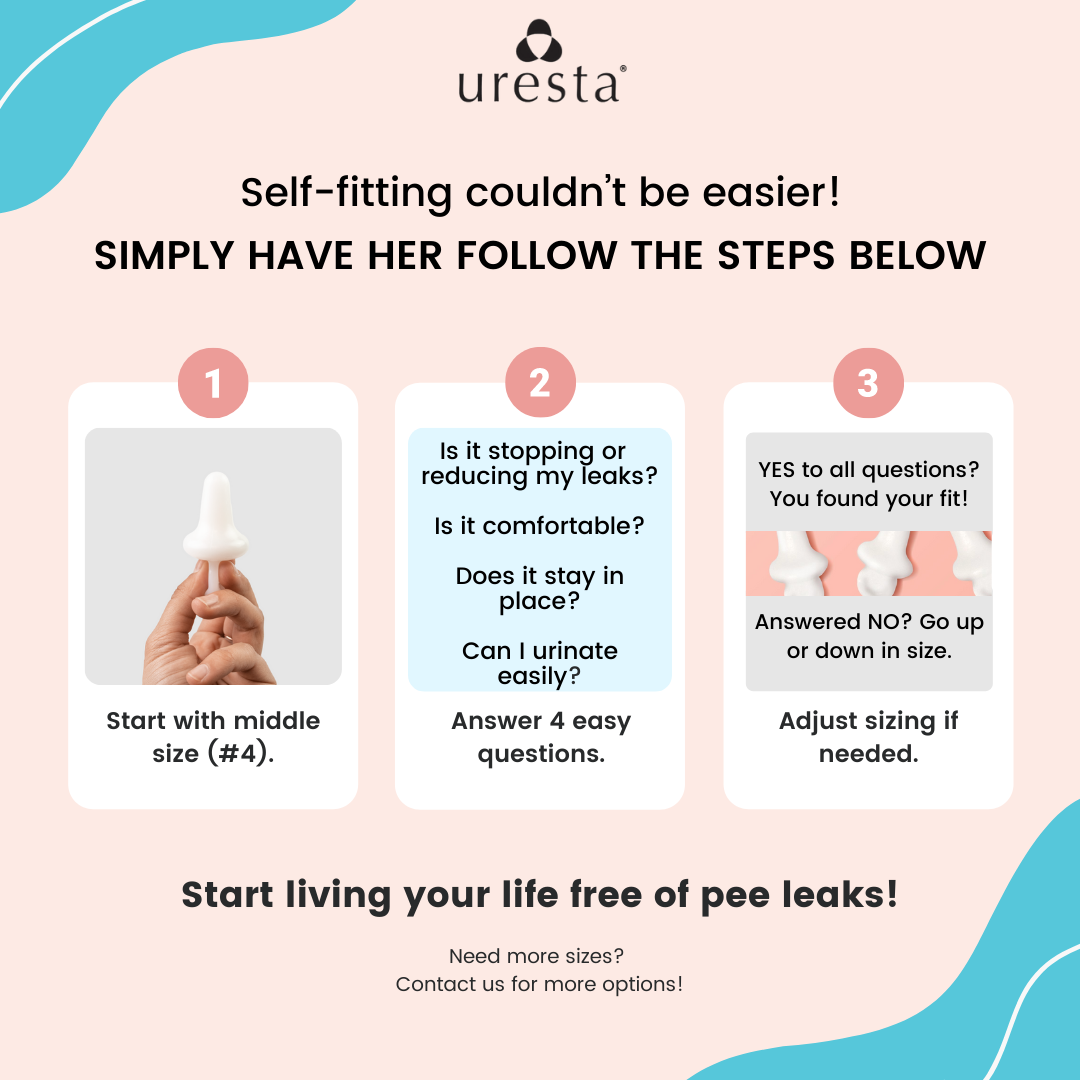Uresta has been featured in an article titled "Screening and Treating Urinary Incontinence in Primary Care: A Missed Opportunity," penned by Ushma J. Patel, Madeline K. Moureau, Joan M. Neuner, and Heidi W. Brown, published in the OBM Geriatrics journal. This article sheds light on the importance of addressing urinary incontinence within primary care settings.
An incontinence pessary, made from medical-grade silicone, serves as an intravaginal device aimed at reinforcing the anterior vaginal wall and bladder neck. With various shapes and sizes tailored to address stress urinary incontinence (SUI), fitting by a qualified provider is essential prior to dispensing a reusable device to the patient. Patients typically have the autonomy to insert and remove the pessary independently or seek assistance from a healthcare provider every 3-6 months. Possible side effects include vaginal discharge, spotting, or epithelial breaches, which are commonly managed with vaginal estrogen therapy. Although rare, prolonged use of pessaries has been associated with fistula development, emphasizing the need for a comprehensive management plan coordinated with the fitting provider.
While incontinence pessaries have undergone thorough examination, newer intravaginal devices are emerging in the consumer market. These devices, similar to incontinence pessaries, aim to provide support beneath the bladder neck and urethra. Examples include disposable options such as Poise Impressa or Revive, designed to mitigate bladder leaks. Additionally, Uresta offers a reusable intravaginal device empowering patients to self-manage their symptoms. Healthcare providers can prescribe Uresta without the necessity for in-office fittings, and it can be conveniently dispensed directly to patients via the pharmacy HealthWarehouse. Distribution in the United States is facilitated by Minerva Health Solutions, which collaborates closely with healthcare facilities and medical providers to ensure widespread accessibility.
More information can be found below.
Patel UJ, Moureau MK, Neuner JM, Brown HW. Screening and Treating Urinary Incontinence in Primary Care: A Missed Opportunity. OBM Geriatrics 2023; 7(4): 252; doi:10.21926/obm. geriatr.


